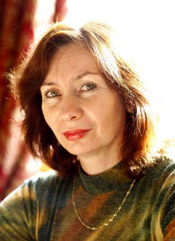New York, February 26, 2010—The Committee to Protect Journalists calls on authorities investigating the July 2009 murder of prominent Russian journalist and human rights defender Natalya Estemirova to publicize their progress on the case seven months after the crime.
The New York Times reported on Thursday that a top investigator with the Investigative Committee of Russia’s Southern Federal District, the agency in charge of the Estemirova probe, confirmed authorities have identified a suspect in the killing.
The investigator, Igor Sobol, did not name the suspect who, he said, was in hiding. The Times also reported that, according to Sobol, the investigation now has the gun used in the murder. Sobol was quoted as saying that the investigation has “objective grounds to identify a group of people” responsible for Esemirova’s abduction and killing.
Fifty-year-old Estemirova reported on human rights abuses in Chechnya for the independent Novaya Gazeta newspaper and the regional news Web site Kavkazsky Uzel, and worked as a researcher and human rights defender with the Russian organization Memorial and Human Rights Watch. She also served as a fixer, consultant, and translator for many Russian and foreign journalists who went to Chechnya to report.
On the morning of July 15, 2009, four men forced Estemirova into a sedan. Her body was found eight hours later in the republic of Ingushetia. Witnesses saw the kidnappers, according to news reports, but they were too afraid to speak. Despite ostensibly tight security along the Chechnya-Ingushetia border, the kidnappers passed through guarded checkpoints undisturbed.
In the aftermath of the killing, Chechen President Ramzan Kadyrov, whose policies Estemirova had criticized, demeaned the journalist and intimidated her colleagues. In an interview he gave to the Russian service of the U.S.-funded Radio Free Europe/Radio Liberty a month after the murder, Kadyrov called Estemirova “a woman no one needs,” someone who “never had any dignity, honor, conscience.” He went on to file a defamation lawsuit against her boss at Memorial, Oleg Orlov, who had publicly accused the Chechen president of involvement in Estemirova’s kidnapping and murder. (Kadyrov withdrew the lawsuit in early February, allegedly on the request of his mother.)
Most recently, in a January 25 interview for the English-language channel Russia Today, Kadyrov blamed the murder on exiled oligarch Boris Berezovsky, and said his motive was to undermine stability in Chechnya. Berezovsky denied the allegations, calling them “ravings,” according to Kavkazsky Uzel.
“Instead of trying to distract the investigation into Estemirova’s murder by making unfounded insinuations, we call on President Kadyrov to focus the energy and resources of his office to assist and fully cooperate with it,” Ognianova said.
A historian by education, in her 10 years’ worth of reporting and research Estemirova had accumulated a damning body of evidence linking torture, disappearances, murders, arsons, and punitive violence in the southern republic to Chechen authorities and, particularly, to the militia of President Kadyrov. Estemirova is one of 19 journalists murdered for their work in Russia, with impunity, since 2000.
